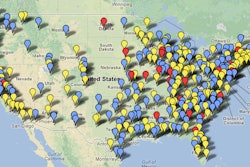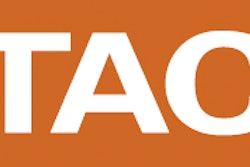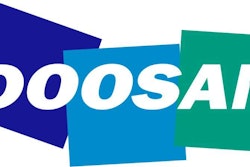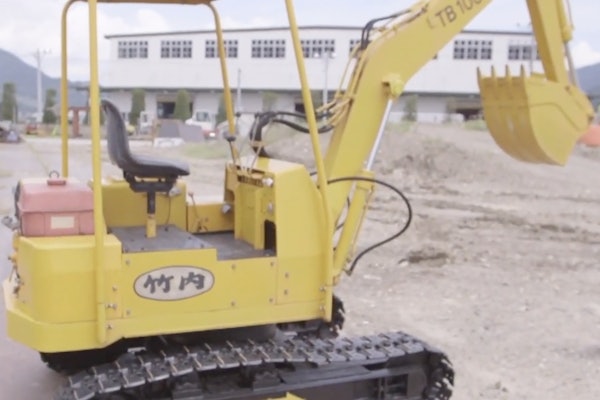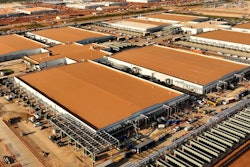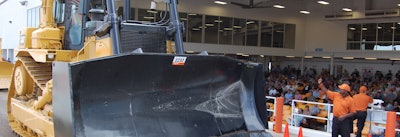
 Ritchie Bros. President Rob Mackay discusses the construction industry at the auction company’s big event in Kissimmee, Florida.
Ritchie Bros. President Rob Mackay discusses the construction industry at the auction company’s big event in Kissimmee, Florida.The Ritchie Bros. equipment auction is in full swing here in Kissimmee, Florida, and given the robust nature of the sales company, President Rob Mackay sees things getting better for the future of the construction economy.
The company saw its sales increase worldwide to $3.9 billion last year and Mackay says recent auctions in Houston, Las Vegas and Phoenix were “exceptionally good.”
Demand, especially for low-hour used equipment started growing again in 2011, Mackay says, with 2009 and 2010 being the only years (other than 1992) that Ritchie Bros. saw revenues decline compared to previous years.
Housing is slowly crawling back, Mackay says, and while construction spending in total only reached some $700-billion last year, that’s still a lot of economic activity, he says.
As a result, prices, especially for low-hour used equipment, are strengthening. In fact, some U.S. buyers are looking overseas to find bargains on low-hour machines. Supply is tight and demand is strong, he says, because many contractors are reluctant to put down money for new equipment until they see signs of the overall economy improving.
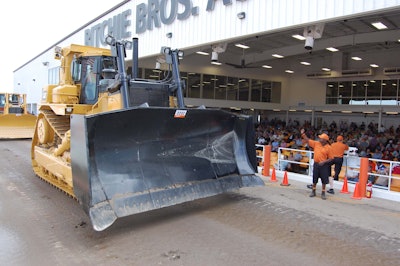 A dozer goes up for auction during a Ritchie Bros. event in Kissimmee, Florida. has brought in 9,500 pieces to be sold in an unreserved auction to some 1,800 bidders
A dozer goes up for auction during a Ritchie Bros. event in Kissimmee, Florida. has brought in 9,500 pieces to be sold in an unreserved auction to some 1,800 biddersRitchie holds auctions in 25 countries all over the globe and the company says the demand will probably increase in the Asia-Pacific region and Eastern Europe after 2013. (Ritchie Bros. will hold its first auction in China April 18.) Australia and most of Latin America will see declines, although Mexico looks like a bright spot, Mackay says. Europe will be flat.
“The United States is on the cusp,” Mackay says. “It could go backward or forward depending on what the government does. “Our best crystal ball look says things should be stable in the U.S. for a period of time.
Mackay says he agrees with Caterpillar’s opinion that the economy will be robust and fully recovered by 2015, and that by 2018 demand and prices for good used equipment will be strong.
One wrinkle in the global used equipment business is the issue of Tier 4 engines, now in production in most new equipment. These low-emissions engines require ultra low sulfur diesel fuel to operate and consequently won’t sell, as is, anywhere outside of the United States, Canada, the Eurozone and Japan.
This may disrupt the pipeline of used equipment flowing from U.S. contractors to Third World and developing countries, and cause contractors owning Tier 4 equipment to change their used equipment disposal strategies.
Most engine manufacturers are saying they will have a “de-tiering” solution ready soon, but Mackay cautions that the de-tiering process will have to occur outside the countries that require Tier 4, and that most of these places don’t currently have the technical capabilities to handle a lot of the new emissions reducing engines.
“In the future, the value of this Tier 4 equipment is a significant unknown,” Mackay says.

